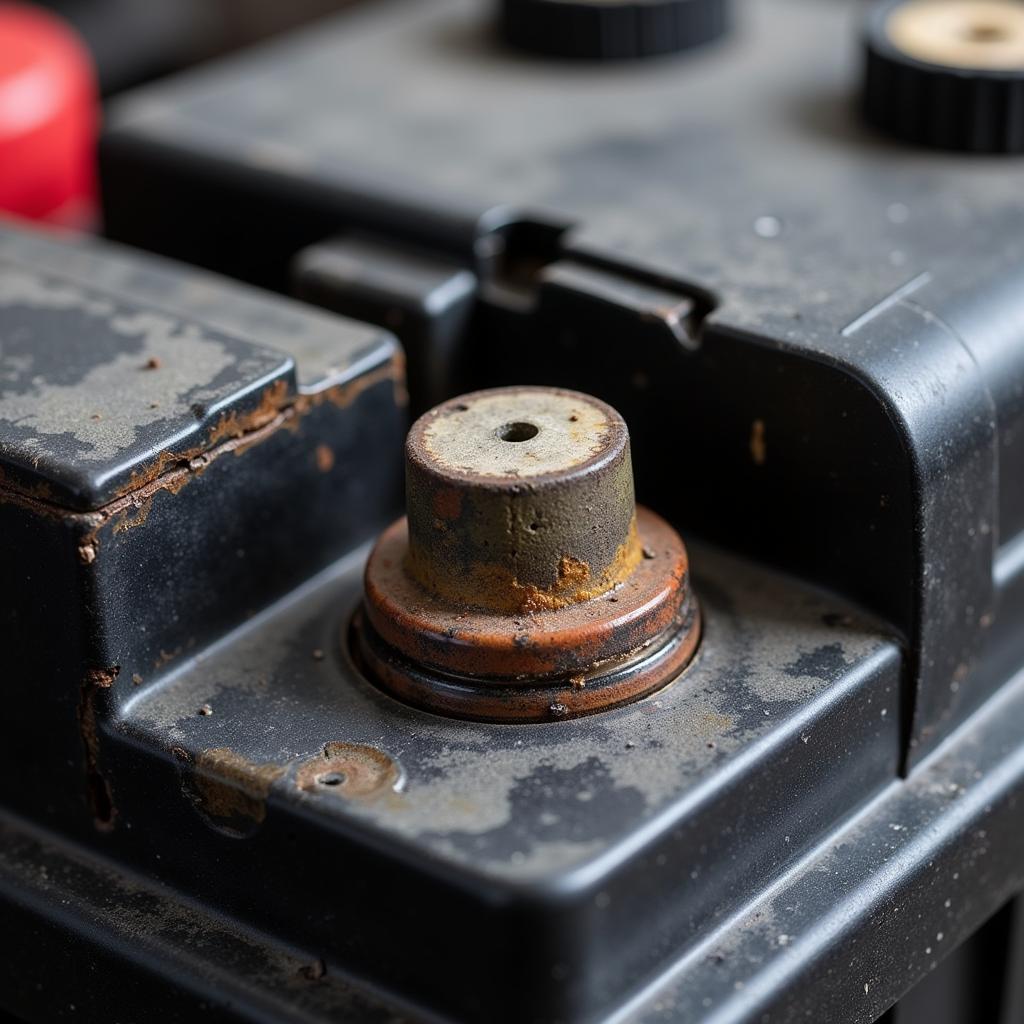A dead or dying battery is frustrating, especially when your car won’t charge. This comprehensive guide will delve into the common reasons why your car isn’t charging and offer practical solutions to get you back on the road. We’ll cover everything from simple checks you can perform yourself to more complex issues that may require professional assistance.
If your car is clicking but won’t start, there might be a connection to the charging issue. Similarly, a new battery but car not starting situation can indicate a deeper problem. We’ll explore these scenarios and offer solutions.
Common Reasons Why Your Car Won’t Charge
Several factors can contribute to a car not charging. Here’s a breakdown of the most common culprits:
- Faulty Alternator: The alternator is responsible for generating electricity to charge the battery while the engine is running. A malfunctioning alternator is a frequent cause of charging problems.
- Dead Battery: Sometimes, the issue isn’t the charging system itself, but a completely dead battery that’s beyond recovery.
 Dead Car Battery Replacement
Dead Car Battery Replacement - Bad Battery Cables: Corroded, loose, or damaged battery cables can disrupt the flow of electricity, preventing the battery from charging properly.
- Blown Fuses: A blown fuse in the charging circuit can interrupt the charging process.
- Problem with the Charging Port (for EVs): For electric vehicles (EVs), a faulty charging port can prevent the vehicle from accepting a charge.
- Malfunctioning Charger (for EVs): A damaged or incompatible EV charger can also be the source of the problem.
Troubleshooting Your Car Charging Problem
If your car won’t charge, here are some steps you can take to diagnose the problem:
- Check the Battery Cables: Inspect the battery cables for any signs of corrosion, looseness, or damage. Clean the terminals and ensure they are securely attached.
- Test the Alternator: Use a multimeter to test the alternator’s output voltage. A healthy alternator should produce around 13.5-14.5 volts. If the output is significantly lower, the alternator may be faulty.
- Inspect the Fuses: Locate the fuse box and check the fuses related to the charging system. Replace any blown fuses.
- Examine the Charging Port (for EVs): For EVs, check the charging port for any debris, damage, or obstructions.
- Try a Different Charger (for EVs): If you suspect a faulty EV charger, try using a different charger to see if the problem persists. If you suspect your car battery isn’t dead but car won’t start, the issue may not be related to charging at all.
“A simple visual inspection of the battery cables can often reveal the culprit behind charging issues. Loose or corroded cables can easily disrupt the flow of electricity.” – John Smith, Automotive Electrical Engineer
Solutions for a Car That Won’t Charge
Once you’ve identified the cause of the charging problem, you can take the appropriate steps to fix it:
- Replace the Alternator: If the alternator is faulty, it will need to be replaced. This is typically a job best left to a professional mechanic.
- Replace the Battery: If the battery is dead and beyond recovery, it will need to be replaced. You can do this yourself or have it done at a repair shop.
- Repair or Replace Battery Cables: Damaged or corroded battery cables should be repaired or replaced.
- Replace Blown Fuses: Replace any blown fuses with the correct amperage rating.
- Repair or Replace the Charging Port (for EVs): A faulty charging port on an EV will need to be repaired or replaced by a qualified technician.
- Replace the Charger (for EVs): If the EV charger is faulty, replace it with a compatible charger.
“Don’t underestimate the importance of a healthy battery. Even with a functioning charging system, a dead battery will prevent your car from starting.” – Maria Rodriguez, Certified Automotive Technician
What if My Car Won’t Start Without a Jump?
Sometimes, your car might require a jump even after charging. This can point to issues beyond a simple charging problem. Learn more about situations where my car wont start without a jump. Similarly, you can find information on checking car battery drain with multimeter to further diagnose battery related issues.
Conclusion
A car that won’t charge can be a significant inconvenience. By understanding the common causes and following the troubleshooting steps outlined in this guide, you can often pinpoint the problem and take the necessary action. If you’re unsure about performing any of these tasks yourself, it’s always best to consult with a qualified automotive technician. Don’t let a car that won’t charge keep you off the road. Addressing the issue promptly can save you time, money, and frustration. If you find that my car is clicking but wont start, it’s crucial to investigate further.
If your new battery but car not starting then checking the charging system is also essential.
FAQ
- How can I tell if my alternator is bad?
- What are the signs of a dead battery?
- How often should I replace my car battery?
- Can I jump-start my EV?
- How do I clean corroded battery terminals?
- What is a parasitic drain on a car battery?
- How long does it take to charge a car battery?
